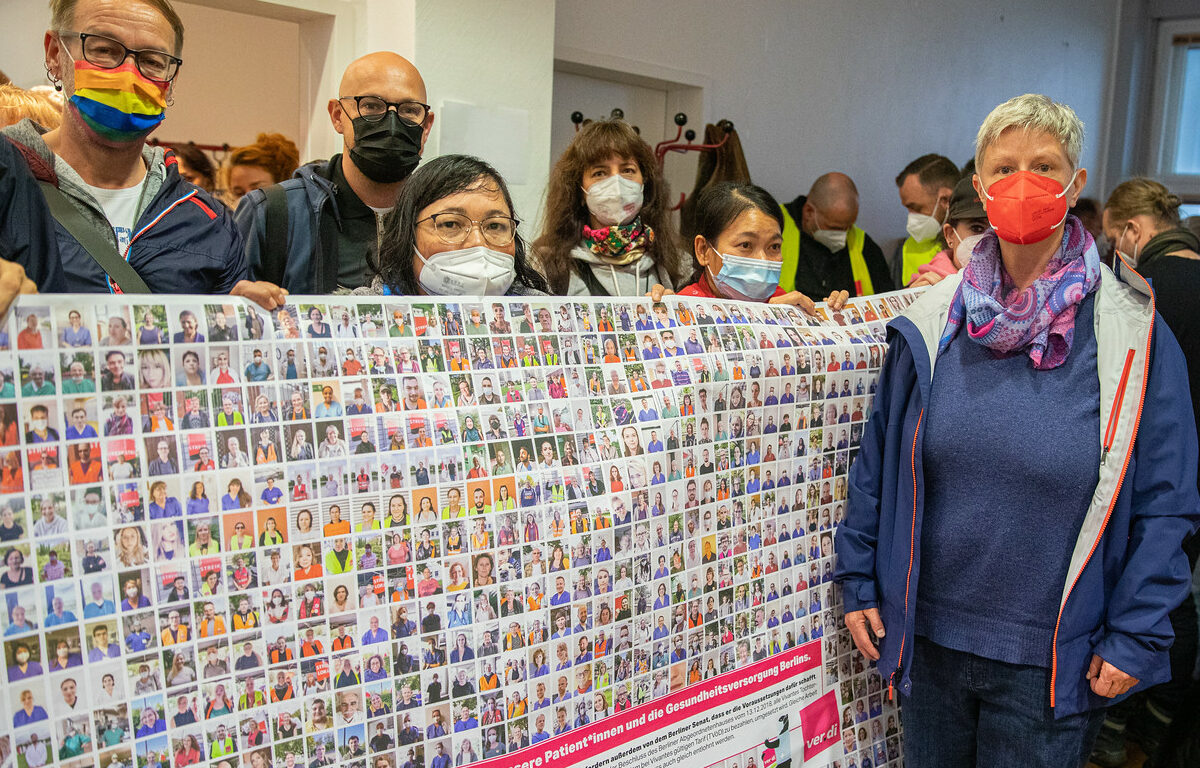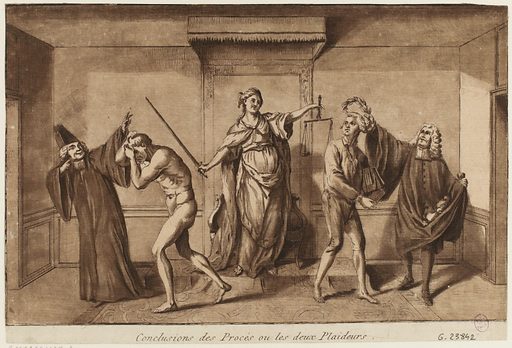The healthcare strike in Berlin is over. After one month, the state-owned hospital owner Vivantes on Tuesday said it was ready to lighten the load on its nursing staff. Vivantes was following the lead of the university hospital Charité, which had agreed an outline deal with the service union Verdi last week. Both sides now aim to hammer out a “Relief Pay Agreement” (Entlastungstarifvertrag) for nursing staff by the end of November.
Heike von Gradolewski-Ballin, lead negotiator from Verdi, said on Tuesday: “With the agreement on key points, we are a big step closer to our goal of achieving lasting workload relief for workers at Vivantes.” She said it had been possible to reach this goal “because the workforce had stood up firmly for its interests: with protests, with determination, and with stamina.” She said the agreement had not only made the healthcare profession more attractive, but also made patient care significantly safer.
Movement successful
Sylvia Bühler, member of Verdi’s national committee, also welcomed the agreement. “Today’s agreement with Vivantes is another important success for our movement for more staff and workload relief in German hospitals,” she was quoted as saying in a press release on Tuesday. She said there were now similar agreements in place for 18 major hospitals in Germany. “Once again workers in the healthcare system have shown that they will no longer be fobbed off by politicians and bosses, but will push through their demands for more staff through workplace struggle.”
The stated aim of the pay agreement is to reduce the workload of workers in nursing above all – clearly, measurably and for the long term. Among other things, the agreement sets out how many patients will be looked after by how many staff in each shift. Should this guideline later not be adhered to, workers will receive clearly defined time off in lieu.
For this purpose, so-called “Vivantes-Freizeitpunkte” (time-off points) will be given out. For example, a nurse will get a point if they have to work on an understaffed ward for one shift. From 2022, for each 9 accumulated points nurses will get one shift off or a payout of €150. A year later, this compensation will be given for just 7 points; in the year 2024, for 5 points.
There won’t, however, be an unlimited number of days off. In 2022, the number will be capped at 6, in 2023 at 10 and in 2024 at 15 days off. After that any further points will be compensated by payouts.
There should also be more support for those who want to train in nursing. Among other things the minimum duration of on-the-job training will be set out. As well as that, trainees will be given a laptop computer, for both work and personal use. At the end of the training it will then become the property of the trainee. Furthermore, trainees will get a job offer by the end of their second year of training.
Strikes as self-defence
In the end Bühler held federal health minister Jens Spahn (CDU) responsible for the strike. She said it was shameful that he had made it necessary for workers in the health system to strike for weeks on end for better staffing levels. “The strikes of hospital workers for workload relief were self-defence, because Mr Spahn has failed to set adequate staffing for hospitals into law,” said Bühler. She said the new federal government must quickly make binding arrangements for adequate staffing. A first step would be to implement the “PPR 2.0” staffing level measurement system – which was put forward by the German Hospitals Association, the German Nursing Council and Verdi at the start of 2020 – in the governing coalition agreement, she said.
Although the basic agreement has been reached with the nursing staff, the workplace struggle is not yet over. Verdi is still aiming for the public sector pay scale (TvÖD) to be applied to all employees of Vivantes subsidiaries. The negotiations will continue today, moderated by the former mayor of Brandenburg Matthias Platzeck (SPD).
The Berlin Hospitals’ Association (BKG) had already warned against this last Friday. If workers of the service companies of the state-owned hospitals were paid according to the public sector pay scale, it argued, competition might be distorted at the expense of other Berlin hospitals. It said service workers in cleaning, logistics and catering, for example, are paid according to pay scales that are typical for the respective sectors. If they were instead paid according to the public sector pay scale, workers at other hospitals might move to the state-owned ones, or make similar pay demands. The other hospitals would not be able to afford that, because their costs are not underwritten by the state.
This article appeared in German in Junge Welt. Translation by Tom Wills.




